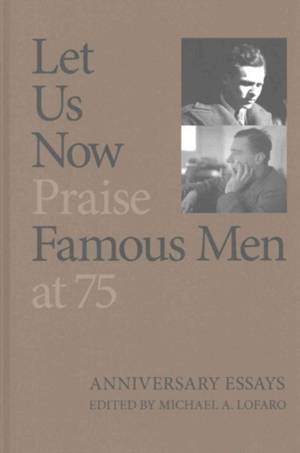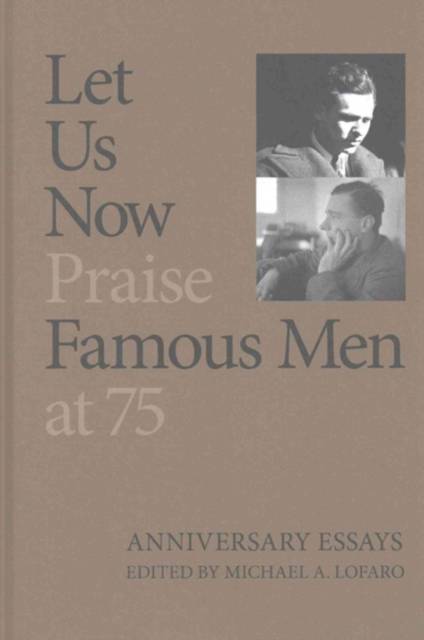
- Afhalen na 1 uur in een winkel met voorraad
- Gratis thuislevering in België vanaf € 30
- Ruim aanbod met 7 miljoen producten
- Afhalen na 1 uur in een winkel met voorraad
- Gratis thuislevering in België vanaf € 30
- Ruim aanbod met 7 miljoen producten
Zoeken
Omschrijving
Barely noticed upon publication in 1941, writer James Agee and photographer Walker Evans's unique chronicle of Alabama sharecroppers, Let Us Now Praise Famous Men, would enjoy a remarkable revival during the 1960s. Remembering it as a "bible of sorts" for civil rights activists like himself, psychiatrist Robert Coles called it "an eloquent testimony that others had cared, had gone forth to look and hear, and had come back to stand up and address their friends and neighbors and those beyond personal knowing." The book has remained in print ever since, profoundly affecting subsequent generations of readers. In this collection, seventeen gifted essayists offer provocative new perspectives on the Agee-Evans classic, ranging from personal appreciations to computational analysis, with forays into literary, film, historical, social, and cultural criticism, among other approaches. David Moltke-Hansen examines the political context in which the book was produced, comparing it in particular to the works of Erskine Caldwell and others with more explicit agendas than Agee, while Sarah E. Gardner explores Agee's position as a southerner in the literary culture of 1930s Manhattan. Contrasting Agee's text to the uncaptioned Evans photographs that open the book, Jeffrey Couchman discusses how the writer applied a "cinematic eye" to his descriptions of the sharecroppers' homes and their possessions. In their essays, Hugh Davis, Brent Walker Cline, and David Madden link Agee with earlier writers such as Wordsworth, Schopenhauer, Dostoevsky, and Melville, while Michael Jacobs considers Agee as a forefather of the "New Journalism" championed by Tom Wolfe. Other contributors explore such disparate topics as Agee's conception of irony, the conflict of art and nature in the book, and the author's portrayal of space. Taken together, these artful elucidations of a notoriously difficult but brilliant work provide the most comprehensive and wide-ranging view of Let Us Now Praise Famous Men to date. MICHAEL A. LOFARO, professor of English at the University of Tennessee, is the general editor of The Works of James Agee series. With Hugh Davis, he coedited James Agee Rediscovered: Journals of Let Us Now Praise Famous Men and Other Manuscripts.
Specificaties
Betrokkenen
- Auteur(s):
- Uitgeverij:
Inhoud
- Aantal bladzijden:
- 414
- Taal:
- Engels
Eigenschappen
- Productcode (EAN):
- 9781621902614
- Verschijningsdatum:
- 17/02/2017
- Uitvoering:
- Hardcover
- Formaat:
- Genaaid
- Afmetingen:
- 160 mm x 234 mm
- Gewicht:
- 748 g

Alleen bij Standaard Boekhandel
+ 164 punten op je klantenkaart van Standaard Boekhandel
Beoordelingen
We publiceren alleen reviews die voldoen aan de voorwaarden voor reviews. Bekijk onze voorwaarden voor reviews.











